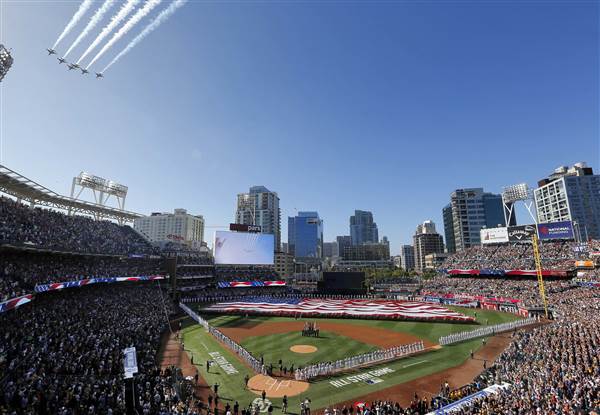When he announced his reasons for not standing during the “Star-Spangled Banner,” San Francisco 49ers quarterback, Colin Kaepernick entered a decades-old debate over the song’s straddling of politics and sport. A number of teams and individual players have dropped the anthem, or refused to acknowledge it, since it became part of gameday routines in the early half of the 1900s. In just about every case, the moves sparked public backlash — and, in the end, tradition won. The practice dates at least back to the Civil War era, when the “Star-Spangled Banner” — written a half-century earlier — first became part of athletic events.
You may also like
ESPN pulls Asian-American announcer from Virginia...
Multiple Browns Players Kneel During National Anthem...
Catch of the year? Junior League Baseball World Series...
NAACP’s Atlanta chapter calls for boycott of NFL
New England is rolling in style for its football games...
Could Football Ever End?
About the author
Teunis Felter
Teunis Felter has over 20 years experience as an author, editor, and scientist. When not exploring outside, he enjoys reading history, researching genealogy, and civilly discussing politics.







